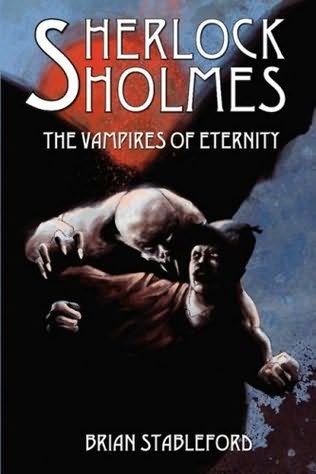| Home |
| Novels |
| Collections |
| Translations |
| Non-Fiction |
| Short Stories |
| Anthologies |

From 1895, when the means of visiting the future through drug-induced "timeshadowing" is discovered by Professor Copplestone, to 12 million years AD, when the Universal Engine seeks to determine the cosmos' ultimate fate, the vast tapestry of time is the theater of a time war between the Overmen, descendents of the vampires, Humanity, and the shadowy intelligence that waits at the End of Time. Sherlock Holmes, the great detective, Count Dracula, the reluctant vampire, the mercurial Oscar Wilde, William Hope Hodgson, freshly returned from the Night Land of the Great War, the visionary H. G. Wells, Alfred Jarry, Camille Flammarion, and many other figures from the literary firmament, become pawns and players in a conflict that spans the entire course of universal history.
Expanded from The Hunger and Ecstasy of Vampires.
Published by Black Coat
Press, January 2009
ISBN: 978-1-934543-06-1

